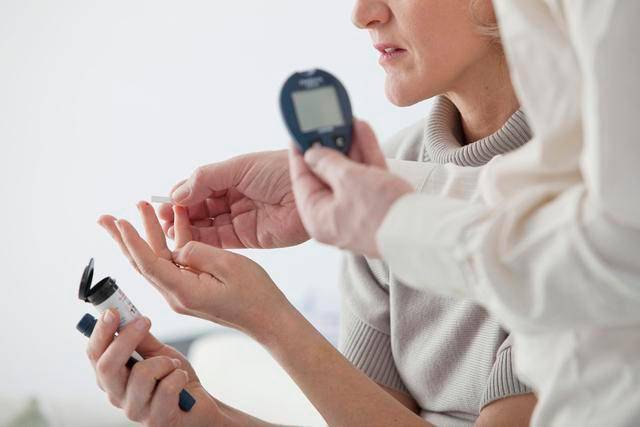Most diabetes patients will measure two blood sugar levels, one is fasting blood sugar, and the other is blood sugar 2 hours after meals, so we will also raise such questions, which one is more important, fasting blood sugar or postprandial blood sugar? The answer is: both are important.
But for type 2 diabetes patients, postprandial blood sugar plays a more crucial role in preventing cardiovascular diseases.
Although fasting blood sugar has always been the standard for diagnosing diabetes, in the process of developing diabetes, symptoms of high postprandial blood sugar have actually appeared early on. Postprandial blood sugar can better reflect the level of blood sugar control. High postprandial blood sugar can lead to the formation of blood clots, increasing the risk of angina, myocardial infarction, and stroke.
High postprandial blood sugar increases the chances of microvascular complications such as diabetic nephropathy and retinopathy, as well as reducing attention and memory, making people feel lack of energy, and even depressed.
Currently, the main drugs for controlling postprandial blood sugar include insulin secretagogues, such as: Novo Nordisk, and alpha-glucosidase inhibitors such as acarbose. Acarbose inhibits the absorption of sugar in the small intestine, while Novo Nordisk stimulates insulin secretion.
Metformin, on the other hand, is an insulin sensitizer that enhances the action of insulin. Metformin is a first-line drug, a long-acting preparation, and is often able to control blood sugar levels well when combined with short-acting acarbose or Novo Nordisk.
However, Western medicine generally has certain side effects. For example, some people may experience gastrointestinal discomfort after taking it for a long time, while others may suffer from liver and kidney damage. Some individuals may develop resistance to the medication early on, leading to increasing doses or changes in medication.
Is there a safe and effective way to control blood sugar without medication?
By doing these 4 things instead of using acarbose and reducing metformin, diabetic patients may be able to get rid of medication:
1. Do not eat too quickly, it is advisable to have meals for 30 minutes.
2. Walk for 30-60 minutes after meals, it is advisable to sweat slightly according to individual constitution.
3. Eat and sleep regularly, adjust your psychology, and keep a cheerful mood.
4. Take more beneficial active bioproducts for the intestines such as yeast, gluten, probiotics, or high-content plant cellulose.
Can diabetes be controlled without medication?
Dietary treatment is the foundation of various types of diabetes treatment. For some patients with mild diabetes, dietary treatment alone may effectively control blood sugar and manage the condition well.
The aim of diabetic dietary treatment is to control blood sugar levels at an ideal level by controlling diet and total energy intake; by dietary control, maintaining normal weight as much as possible to avoid obesity or overweight; providing proper and balanced nutrition through dietary treatment to maintain normal bodily function and resistance; through proper diet, reducing the influence of adverse factors, lowering the occurrence of cardiovascular and cerebrovascular diseases, thereby helping to control the occurrence and development of diabetic chronic complications.
Symptoms of diabetes:
Early diabetes may not have symptoms, but some diabetic patients may have increased nighttime urination early on. Some diabetic patients may have atypical symptoms like fatigue, itchy skin, blurred vision, slow wound healing, etc. The typical symptoms of diabetes are “polyuria, polydipsia, polyphagia, and weight loss”. In the later stages, diabetic patients may develop complications such as blindness and foot ulcers.
Dietary considerations for diabetes:
Diabetic patients should pay attention to a diet that is low in salt, low in fat, and low in sugar, eat regularly and in moderate amounts, have a balanced diet, and eat scientifically. Try to avoid high-sugar foods like chocolate and focus on fresh vegetables such as wood ear mushrooms and bitter gourd. Include quality protein foods like eggs and lean meat in moderation; cooking mainly using less oil and salt and employing steaming and boiling as primary methods instead of frying.


